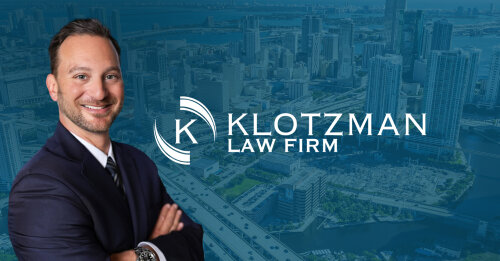Best Lawsuits & Disputes Lawyers in New York City
Share your needs with us, get contacted by law firms.
Free. Takes 2 min.
List of the best lawyers in New York City, United States
1. About Lawsuits & Disputes Law in New York City, United States
In New York City, Lawsuits & Disputes encompass civil actions filed in state and local courts. These cases cover contracts, property, personal injuries, employment, consumer disputes and municipal claims. The City uses a mix of state statutes and city codes to regulate procedure and remedies.
Civil litigation in NYC typically follows a path from complaint, to service, to response, through discovery, motions, settlement or trial, and potentially appeal. An attorney or solicitor can help navigate deadlines, evidentiary rules and strategic choices at each stage. Because NYC courts operate under statewide rules, most guidance is universal across the five boroughs, with local court rules sometimes shaping how matters are heard in practice.
Key bodies involved include state and city courts, administrative agencies, and statutory frameworks such as the Civil Practice Law and Rules (CPLR) for civil actions, and rules governing property, housing and municipal disputes. For those facing lawsuits in New York City, understanding these rules helps in making informed decisions about whether to hire legal counsel, and what to expect in terms of timelines and costs.
2. Why You May Need a Lawyer
In New York City, certain disputes require specialized legal analysis or aggressive advocacy. Here are concrete scenarios where hiring a lawyer is often essential:
- Eviction and housing disputes with a landlord. If you are a tenant facing eviction or a landlord pursuing a possession action, counsel helps navigate CPLR procedures and housing court rules, and can address issues under the Housing Stability and Tenant Protection Act of 2019 (HSTPA) that affect notices and defenses.
- Losses from a car crash or premises liability in NYC. Personal injury cases require evidence gathering, insurance interactions, and procedural steps to preserve claims and avoid waivers. An attorney helps evaluate fault, damages and settlement options carefully.
- Contract disputes with a vendor, landlord or business partner. Breach of contract claims involve complex discovery, contract interpretation, and potential motion practice. A lawyer helps protect your rights and pursue accurate damages.
- Worker misclassification or wage and hour claims. If you suspect misclassification or underpayment of wages, counsel can assess Wage Theft protections under New York Labor Law and local rules, and guide you through administrative remedies and lawsuits.
- Disputes involving a city agency or public entity. Cases against NYC or state agencies require notice of claim procedures and timing under General Municipal Law, plus jurisdiction-specific rules that a lawyer will manage.
- Real estate title or property boundary disputes. Property litigation involves title evidence and potential injunctive relief. An attorney helps prepare pleadings and respond to defenses in a precise way that preserves remedies.
3. Local Laws Overview
Two to three key statutes and regulations guide Lawsuits & Disputes in New York City, with notes on how they apply in practice and any recent developments:
- Civil Practice Law and Rules (CPLR) - The core set of procedural rules for civil actions in New York courts, including pleadings, motions, discovery, and trial practices. See official legislative resources for the current text and amendments. General Civil Practice Law and Rules.
- Real Property Actions and Proceedings Law (RPAPL) - Governs property disputes, including actions to recover possession and other real estate related proceedings. This statute shapes how eviction and property disputes are pursued in New York courts. RPAPL - Real Property Actions and Proceedings Law.
- General Municipal Law (GML) § 50-e and § 50-i - Establishes the notice of claim requirement and time limits for lawsuits against public entities, including NYC agencies. This is critical if your dispute involves the City or its departments. See the official text for details. General Municipal Law.
Recent trends to be aware of include expanded electronic filing (e-filing) for civil cases in New York City courts and ongoing reforms to housing protections that affect how tenants and landlords proceed with litigation. For example, the New York State Unified Court System has expanded e-filing and online resources to streamline case management in NYC courthouses.
Sources indicate e-filing and online access have been expanding in state courts to improve efficiency.New York State Unified Court System.
Helpful resources for statutory context and official guidance can be found on government sites, including the New York State Unified Court System and city agencies that regulate housing and consumer protections.
4. Frequently Asked Questions
What is a civil lawsuit in New York City?
A civil lawsuit is a legal action brought in a New York court to resolve non-criminal disputes. It typically involves a complaint, service, responses, discovery and a potential trial.
How do I file a complaint in NYC Civil Court?
You file a complaint with the appropriate court, serve defendants, and follow the court’s scheduling orders. The process varies by case type and court location.
What is CPLR used for in New York?
CPLR provides the rules for civil litigation, including pleadings, motion practice, discovery and appeals. It governs most non-criminal cases in New York State courts.
How much does hiring a lawyer typically cost in a NYC dispute?
Costs vary widely by issue and complexity. Expect hourly rates for attorneys that can range significantly; many lawyers offer initial consultations and flat-fee options for straightforward matters like small claims or document review.
How long do disputes take in New York City from filing to resolution?
Timelines depend on case type and court workload. Some cases settle quickly, while others proceed through several court dates and discovery periods over many months or years.
Do I need a lawyer for a small claims case in NYC?
For small monetary disputes, you can file pro se, but a lawyer can improve your pleadings, evidence presentation and settlement outcomes if the case is complex or risk of appeal exists.
What is the difference between a civil case and a criminal case?
A civil case seeks monetary or equitable relief between private parties, whereas a criminal case involves violations of criminal law prosecuted by the state with potential penalties like imprisonment.
Is there a time limit to file a claim against a municipality?
Yes. New York General Municipal Law requires timely notice of claims and specific filing deadlines. Missing deadlines can bar your claim, so consult counsel promptly.
Can I sue the City of New York or other public entities?
Yes, but strict rules apply, including notice requirements and timelines. A lawyer helps ensure compliance and proper forum selection.
Should I hire a NYC attorney who specializes in contracts or property disputes?
Yes, specialization improves understanding of governing statutes, precedents and practical strategies for your particular issue.
Do I qualify for legal aid or free legal services in NYC?
Qualifying programs exist for low-income individuals or specific civil matters. Check NYC or state-sponsored resources for eligibility and intake procedures.
Do I need to know the law before talking to a lawyer?
No, but gathering key documents and a brief timeline helps a lawyer assess your case quickly and accurately.
Is discovery in NYC civil cases automatic or selective?
Discovery is generally broad, but courts can limit or tailor it via court orders, protective orders or lawyer negotiations.
What are the steps after I file a complaint?
The court issues a calendar, the defendant answers or moves, and the case proceeds through discovery and motions toward settlement or trial.
5. Additional Resources
Access to authoritative, government-backed resources can support your understanding and planning. Consider these official resources:
- New York State Unified Court System - Official hub for civil procedures, court forms, e-filing and court calendars across New York State. nycourts.gov
- General Municipal Law (GML) - Governs claims against public entities, including notices of claim and time limits. Official text and updates are available through the New York State Legislature. General Municipal Law
- New York City Department of Consumer and Worker Protection - Official resource for consumer rights, complaints against merchants and related disputes in NYC. DCWP
6. Next Steps
- Identify the exact dispute and jurisdiction. Decide whether the matter is a contract, property, personal injury or municipal claim. Note the city or state court who will hear it.
- Gather key documents now. Collect contracts, notices, receipts, communications, photos and timelines. Create a chronological file for easy reference by a lawyer.
- Check deadlines and statutes of limitations. NY matters have strict deadlines for filing and response. See CPLR and GML timelines on official sites for specifics.
- Consult a NYC lawyer who specializes in the relevant area. Ask about experience with similar disputes, fee structure, and expected timelines.
- Request a formal consultation with a plan. Bring your documents, a proposed timeline, and a clear objective to the meeting.
- Ask about alternatives to litigation. In many NYC disputes, mediation or arbitration can resolve issues more quickly and cost-effectively.
- Agree on a written engagement and scope of work. Confirm fees, provide a retainer estimate, and outline who handles filings and deadlines.
Lawzana helps you find the best lawyers and law firms in New York City through a curated and pre-screened list of qualified legal professionals. Our platform offers rankings and detailed profiles of attorneys and law firms, allowing you to compare based on practice areas, including Lawsuits & Disputes, experience, and client feedback.
Each profile includes a description of the firm's areas of practice, client reviews, team members and partners, year of establishment, spoken languages, office locations, contact information, social media presence, and any published articles or resources. Most firms on our platform speak English and are experienced in both local and international legal matters.
Get a quote from top-rated law firms in New York City, United States — quickly, securely, and without unnecessary hassle.
Disclaimer:
The information provided on this page is for general informational purposes only and does not constitute legal advice. While we strive to ensure the accuracy and relevance of the content, legal information may change over time, and interpretations of the law can vary. You should always consult with a qualified legal professional for advice specific to your situation.
We disclaim all liability for actions taken or not taken based on the content of this page. If you believe any information is incorrect or outdated, please contact us, and we will review and update it where appropriate.
Browse lawsuits & disputes law firms by service in New York City, United States
New York City, United States Attorneys in related practice areas.

















